
Dear readers,
"Everything is actually fine on board, only the plotter sometimes goes crazy!" A sentence uttered in Rees after returning home from the jetty. "There's probably nothing wrong with your plotter," I reply. And ask whether the issue of GPS malfunctions on the Baltic Sea is well known. Of course it is. But here with us? Yes, unfortunately. Even here, or rather where we are sailing now, during the holiday season.
The conversation reminds me of the disbelief that creeps over some people when they find out that they have a rare disease. Sure, everyone has heard that it exists. But affected yourself?
My counterpart takes it in his stride. "Then I can save myself the trouble of hiring a yacht electronics engineer," he says and adds, almost romantically, "I still know how to sail without GPS!"
Now there is plenty to talk about for the whole evening. What follows are anecdotes from a time when even electricity on board some yachts was still frowned upon as "new-fangled stuff" - albeit mostly due to the conditions in the years when sailing was permitted again after the war and equipment was in short supply.
There are lovely old stories of railing logs and meridian tethering, of foggy approaches with the hand plumb bob as the only aid, of hours of plotting on the unlit steering compass and of counting the identifications of beacons at night, which were necessary in order to obtain at least some certainty from a cross bearing as to whether the coupling point was approximately correct or whether more or less current or drift had to be taken into account.
I attribute the stories of the bakery navigation (getting bread rolls after arriving to read where you are on the bag) to the late evening, but still express amused astonishment, because I am a polite person.
I walk to the bunk somewhat thoughtfully. Because I am actually confronted with a new reality, which I had read about so farbut which I have suppressed like the aforementioned patient his diagnosis. I now realise that prudent navigation in my area this summer really does involve not relying on the GPS location.
In my mind, I'm travelling with my boat without a plotter or chart app. Am I even ready for that? There are no plans for a big trip across the sea this summer. But what if fog does roll in or the weather conditions force me to sail out of sight of land?
I'm confident enough to do this on the paper chart. The log and plumb bob work, the course ruler is always to hand, a decent bearing compass sits in its holder on the chart table, and handling all this was part of everyday life on board in my early years under sail.
However, an easy-to-read steering compass is also and above all indispensable for classic navigation, and you should be reasonably familiar with its deflection. I remember talking to a sailor who thought that the compass in the cockpit was unnecessary due to modern navigation electronics. He probably wouldn't even be able to steer by it for hours, which is essential for proper dead reckoning.
But if I'm honest, that's where it starts for me too: only last summer, I remember now, I made a firm resolution to improve the compass lighting at night in the Great Belt. And over the past few years, I've installed all sorts of things on board, but never checked the effect on the compass.
More on the topic:
I think to myself that I could probably manage and fall asleep, but the next morning I wake up with the intention of taking the topic of navigation a little more seriously again.
Even those who manage without news on board and try to escape everyday life in this way have to admit that GPS interference is part of our sailing reality for the time being. The Swedish Sjöfartsverket officially warns against thisin the southern, central and northern Baltic Sea as well as in the Gulf of Finland and the Åland Sea.
It is assumed that the faults are part of the hybrid warfare and from Russian military bases, or the shadow fleet go out.
In practice, this means that the receiver loses the signal. This can be recognised by displaying the satellites in use. If only a few are being used, this may be due to interference. This usually works in such a way that a stronger interference signal overlaps that of the satellite.
An indication of such a fault may be if the speed displayed by the GPS device fluctuates unusually strongly. Or that the ship's position jumps. If only an incorrect location is displayed, the error may remain undetected - and that is the real danger for us sailors.
Co-locating or, when it comes down to it, determining a location terrestrially should therefore be part of the routine on board again. As part of a - hopefully not permanent - new reality.
Lasse Johannsen
Deputy Editor-in-Chief of YACHT
You have voted - the result of last week:
Recommended reading from the editorial team

X-Yachts
More performance and comfort
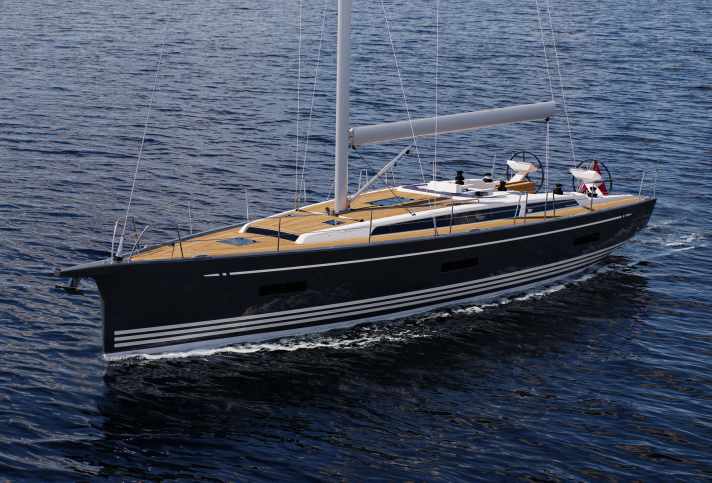
X-Yachts has revised the X4.6. The new version, called Mk II, is said to sail even better and has been improved in many details.
Dream berth
Flakfortet is looking for a new owner - and ideas
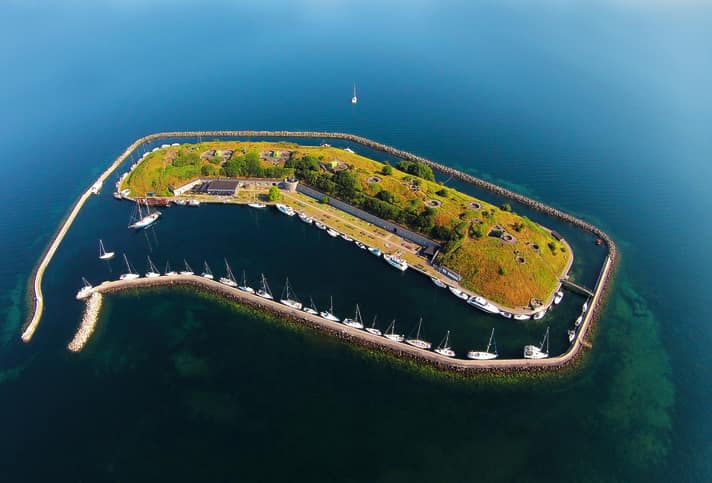
An artificial fortress island just eight kilometres from Copenhagen - with its own marina and berths directly beneath the fort: Flakfortet is up for sale. The sea fort is set to change hands for 74.75 million Danish kroner (around 10 million euros) after almost 25 years in Swedish hands. However, monument protection, public accessibility and the question of future use make the deal complex. What buyers can expect - and how things could continue on site.
New podcast episode
Jens Kroker promotes "different skills" in sailing

Extraordinary lives, courage and the power of sailing: Timm Kruse talks about this with Paralympics winner Jens Kroker in the 60th episode of the sailing podcast
Boris Herrmann
"I love the aggressive lines"
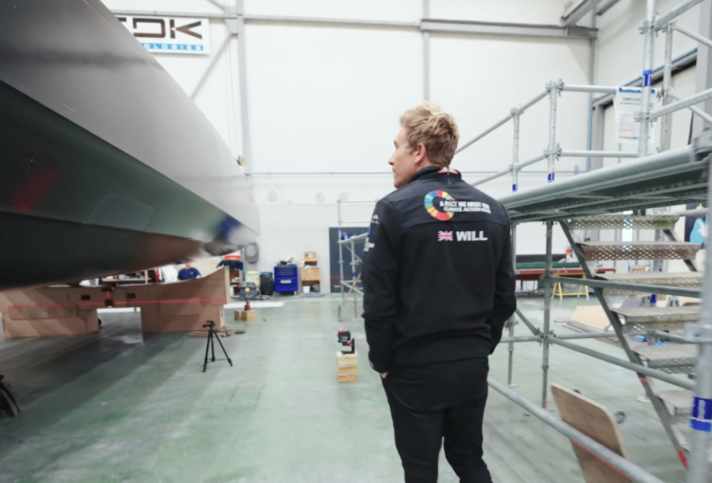
Team Malizia has presented the hull of the new "Malizia 4" in detail for the first time. Boris Herrmann is delighted with the more aggressive lines and explains the plans.
Ghost ships
How the "HMS Resolute" drifted out of the pack ice and into the Oval Office
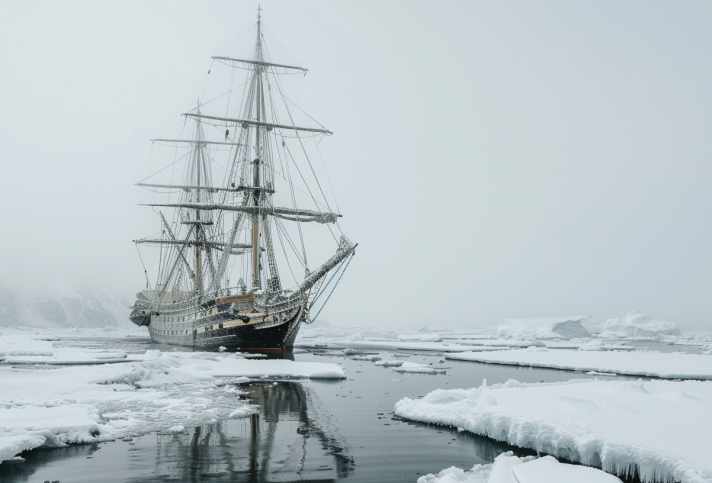
Ghost ships are usually legends - but the "HMS Resolute" is an exceptional case: rescued rudderless from the Arctic pack ice, she became a diplomatic symbol and lives on today as a famous desk in the Oval Office.
Vendée Globe
"Born to Race" with Boris Herrmann - Aiming for performance
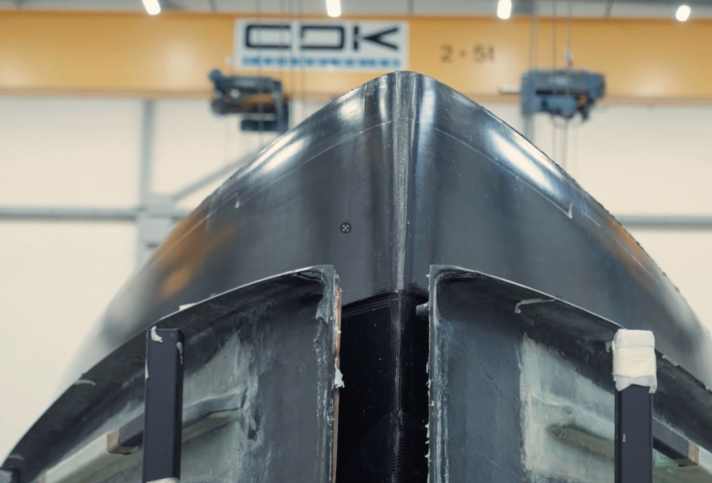
Boris Herrmann and Team Malizia continue their documentary series "Born to Race" with part 2. The new Malizia construction is progressing. The hull can be seen for the first time.
Radar
New examination simulator for professional and yacht skippers
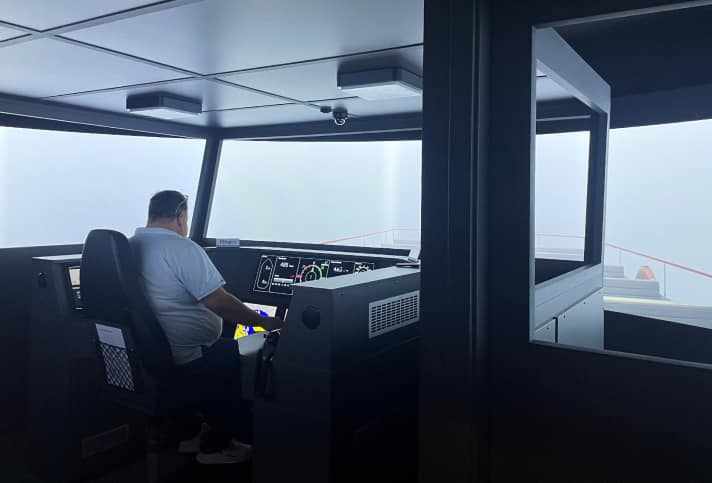
Radar navigation as an additional qualification to the pleasure craft licence. Recently, examinations have been held on a ship simulator for professional skippers.
Airborn Foiler
Innovative flying machine with a brain
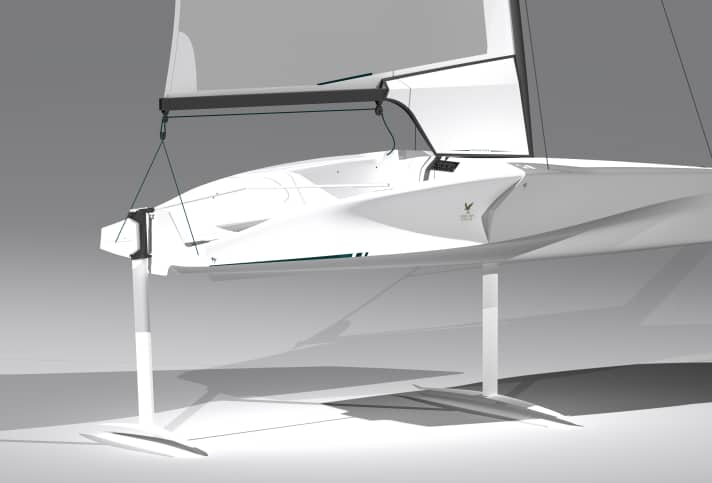
With the Airborn Foiler by designer Thomas Tison, it is not the helmsman who controls the height and balance of the flight, but a microprocessor via small electric motors. The innovative aircraft is now set to go into series production.
Portrait
Globe 40 skipper Lisa Berger sails around the world from Lake Attersee
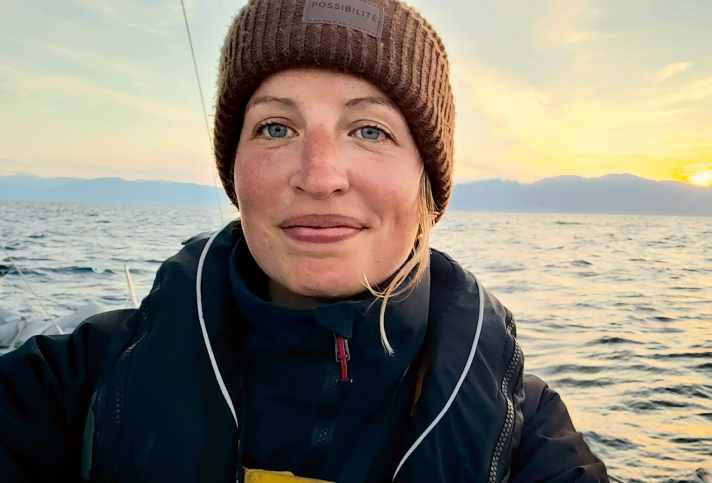
Lisa Berger does what many only dream of. The Austrian Globe40 circumnavigator from Lake Attersee is approachable, authentic, persistent and courageous.
Arcona 465 MK II
Consistent fine-tuning with a Swedish signature
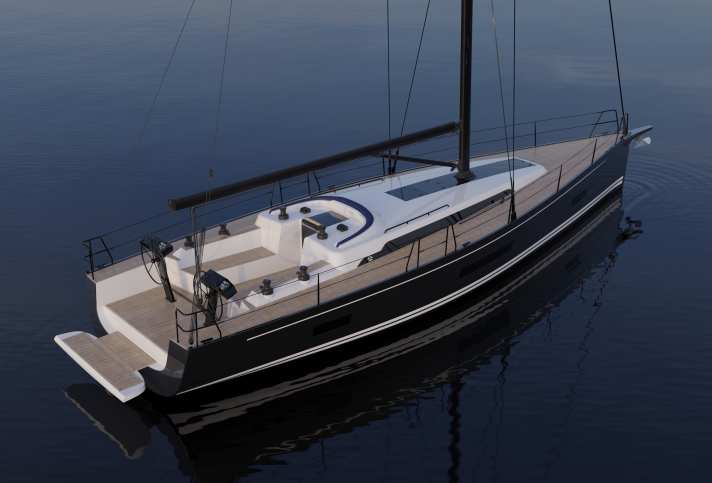
Model update at Arcona Yachts. The Swedish shipyard has once again thoroughly revised its long-selling Arcona 465 and is now launching the attractive performance cruiser as an MK II version. And; as before, the boat is available in both carbon fibre and now also in GRP construction.
Newsletter: YACHT-Woche
Der Yacht Newsletter fasst die wichtigsten Themen der Woche zusammen, alle Top-Themen kompakt und direkt in deiner Mail-Box. Einfach anmelden:

